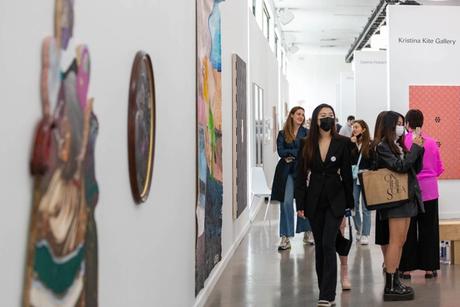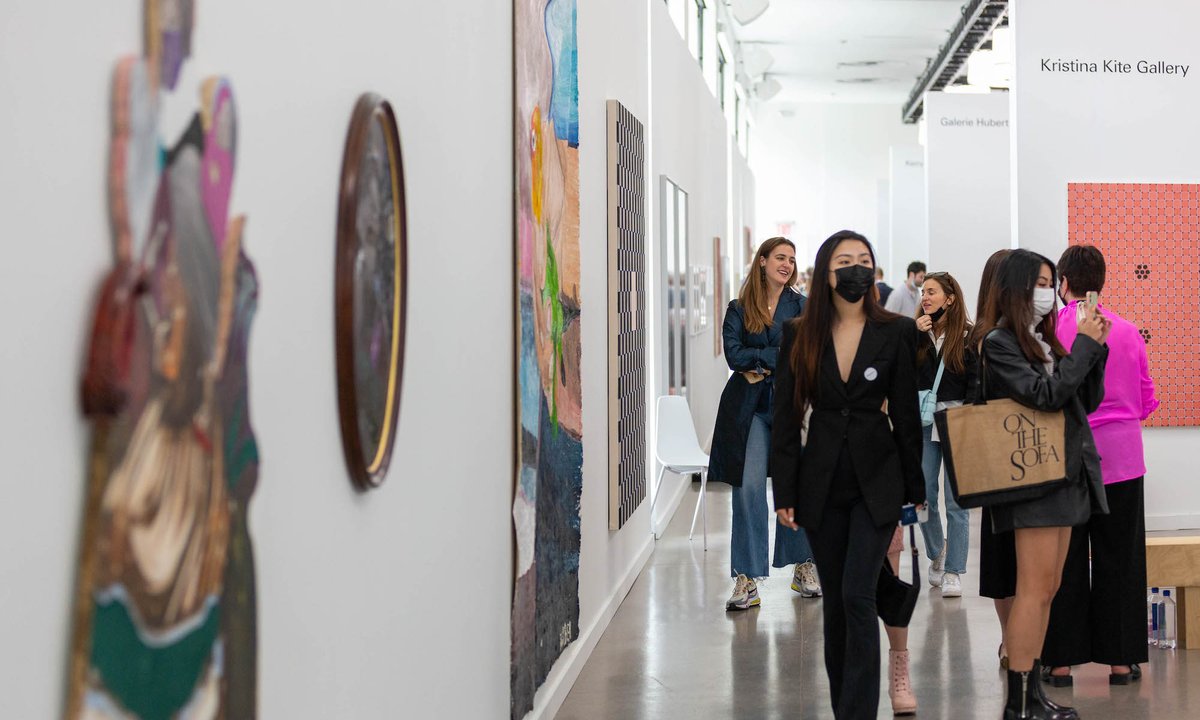
This week, multiple art fairs opened around New York City, signaling the return of a certain sense of normalcy despite the global pandemic that is still unfolding. Covid-19 cases in the New York area, as well as globally, are on the rise and many Covid policies remain in place to address the spread of the virus. But health and safety protocols vary greatly from city to city, business to business and fair to fair. Timed entry and proof of vaccination remains industry standard at many art events in New York, but things are less clear cut when it comes to children, especially those under five, for whom the Centers for Disease Control and Prevention have not yet approved vaccines.
On 5 May a mother and her four-month-old baby were denied entry to the Independent art fair due to its Covid-19 health and safety protocols. The fair’s website states the following in regards to those regulations: “We will require that all guests, exhibitors, vendors and Independent staff wear masks indoors at all times and present proof of vaccination at the door to gain entry to the fair. Children (5+) must also provide proof of vaccination in order to enter. […] Guests that cannot meet the above criteria will not be permitted to enter the venue.” While tickets to the fair state that all guests must present proof of vaccination, how that policy applies to children for whom vaccines have not yet been approved is unclear.
“Per our health and safety policy, we will require that all guests, exhibitors, vendors and Independent staff wear masks indoors at all times and present proof of vaccination at the door to gain entry to the fair,” a spokesperson for Independent wrote over email, repeating the language from the fair’s website. “Children (5+) must also provide proof of vaccination in order to enter. Per this policy, if vaccination cannot be provided, entry will not be allowed.” The spokesperson did not elaborate when asked about children under five.
While some New York art spaces—most famously the Neue Galerie—have banned children under a certain age, no such ban has been articulated by Independent’s organisers. Other fairs such as Tefaf New York and Nada New York have guidelines for children under five. “All visitors, participants and staff (ages 2 and older) will be required to wear masks in order to enter Nada New York,” Nada’s policy states. Tefaf only requires visitors five years and older to have proof of vaccination.
Vaccine checks at Independent are strict, but the fair’s mask policy—like those of other fairs taking place during New York Art Week—is rarely enforced once inside the venue. This makes the hardline adherence to a rule that either by design or by accident bans all children under five from attending the fair all the more startling. In this context, denying entry to a parent with a baby who isn’t of an age to receive a vaccine could be perceived as a discriminatory practice.
In a week when an unprecedented leak of a draft decision by the US Supreme Court foretold the overturning of Roe v. Wade, the landmark abortion rights case, larger questions about reproductive rights, motherhood and how these things are socially practiced and regulated are being closely scrutinised. Independent’s policy effectively denying entry to visitors with children under five underlines a tendency in the US—the richest nation in the world and the developed nation that does the least to support new parents—to treat child-rearing as an inconvenience and an imposition rather than a right.







